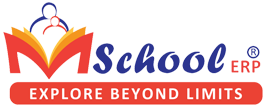
Complete LMS For Onboarding Training
An LMS for corporate onboarding training can help new employees quickly learn the company's policies and procedures, and become more integrated with the organization. It can also help them to develop a better understanding of the company's culture and values. An LMS for onboarding training can also help to monitor the progress of new employees and provide support when needed.
LMS for corporate onboarding training allows companies to quickly and easily provide new employees with the necessary information and tools to do their jobs. This can help reduce time and cost associated with traditional onboarding methods. Additionally, it can help ensure that employees are properly trained and knowledgeable about the company's policies and procedures.
An LMS for corporate onboarding training can be used to quickly onboard new employees and provide them with the necessary knowledge and skills to be successful in their roles. The LMS can also provide access to resources such as training materials, videos, and webinars. Additionally, the LMS can keep track of employee progress and provide feedback to ensure the employee is on track.
An LMS for onboarding training can help companies create and manage employee onboarding programs. This can include training new employees on company policies, procedures, and expectations. Additionally, an LMS can provide employees with resources and support to help them navigate their new role.
An LMS for corporate onboarding training can be used to provide new employees with a comprehensive overview of the company's culture, policies, and procedures. This type of training can also be used to help new employees gain the skills they need to do their job effectively.
Benefits of LMS for Employee Training
1. Efficient and Consistent Onboarding
- Centralized Information: An LMS provides a centralized platform where new employees can access all necessary onboarding materials, including company policies, procedures, and training modules.
- Standardization: Ensures consistency in the onboarding process across different departments and locations, regardless of the trainer or location.
- Self-Paced Learning: Allows new hires to progress through training at their own pace, ensuring thorough understanding before moving to the next module.
2. Comprehensive Learning Experience
- Company Culture and Values: Introduces new employees to the company's culture, values, and mission through interactive modules, videos, and presentations.
- Role-Specific Training: Provides job-specific training to equip new hires with the skills and knowledge needed to perform their roles effectively from day one.
- Legal and Compliance Training: Includes modules on legal requirements, safety protocols, and compliance measures to ensure all employees are informed and compliant.
3. Progress Tracking and Support
- Monitoring Progress: Allows HR and managers to track the progress of new hires, ensuring they complete required training modules and assessments.
- Feedback and Support: Provides opportunities for managers to provide feedback and support to new employees, addressing any questions or concerns they may have during the onboarding process.
4. Cost-Effectiveness and Time Savings
- Reduction in Training Costs: Saves on costs associated with traditional onboarding methods, such as printed materials, instructor fees, and travel expenses.
- Time Efficiency: Accelerates the onboarding process, allowing new employees to become productive more quickly, which is crucial for overall organizational efficiency.
5. Integration with HR Systems
- Seamless Integration: Integrates with existing HR systems, allowing for easy access to employee data, performance metrics, and training history.
- Automation: Automates administrative tasks such as sending reminders, generating reports, and updating training materials, freeing up HR and administrative staff for other critical tasks.
How LMS Enhances Onboarding Training Over Traditional Methods
Transition to Digital Onboarding
- Accessibility: Provides anytime, anywhere access to onboarding materials, accommodating remote work and global teams.
- Scalability: Scales easily to accommodate large numbers of new hires, ensuring consistent quality of training delivery.
- Flexibility: Allows for updates and revisions to training content in real-time, ensuring employees receive the most current information.
Benefits Over Traditional Onboarding Methods
- Personalization: Tailors learning experiences to the needs and learning styles of individual employees, improving engagement and retention.
- Analytics: Provides data-driven insights into onboarding effectiveness, allowing for continuous improvement of the onboarding process.
- Engagement: Enhances employee engagement through interactive and multimedia-rich content, fostering a positive first impression and commitment to the organization.
Conclusion
Implementing an LMS for corporate onboarding training offers significant advantages over traditional methods, including efficiency, consistency, cost-effectiveness, and improved employee engagement. By leveraging the capabilities of an LMS, companies can ensure that new hires are well-prepared, integrated, and aligned with the organization's goals from their first day onward. This not only enhances employee satisfaction and retention but also contributes to overall organizational success.
StudyOn Features
Schedule a
Live StudyOn
Demo.
Mindscan Software Solutions Pvt. Ltd. proudly presents StudyON, our state-of-the-art Learning Management System (LMS) tailored for schools and institutes.
Book A Free Demo



















